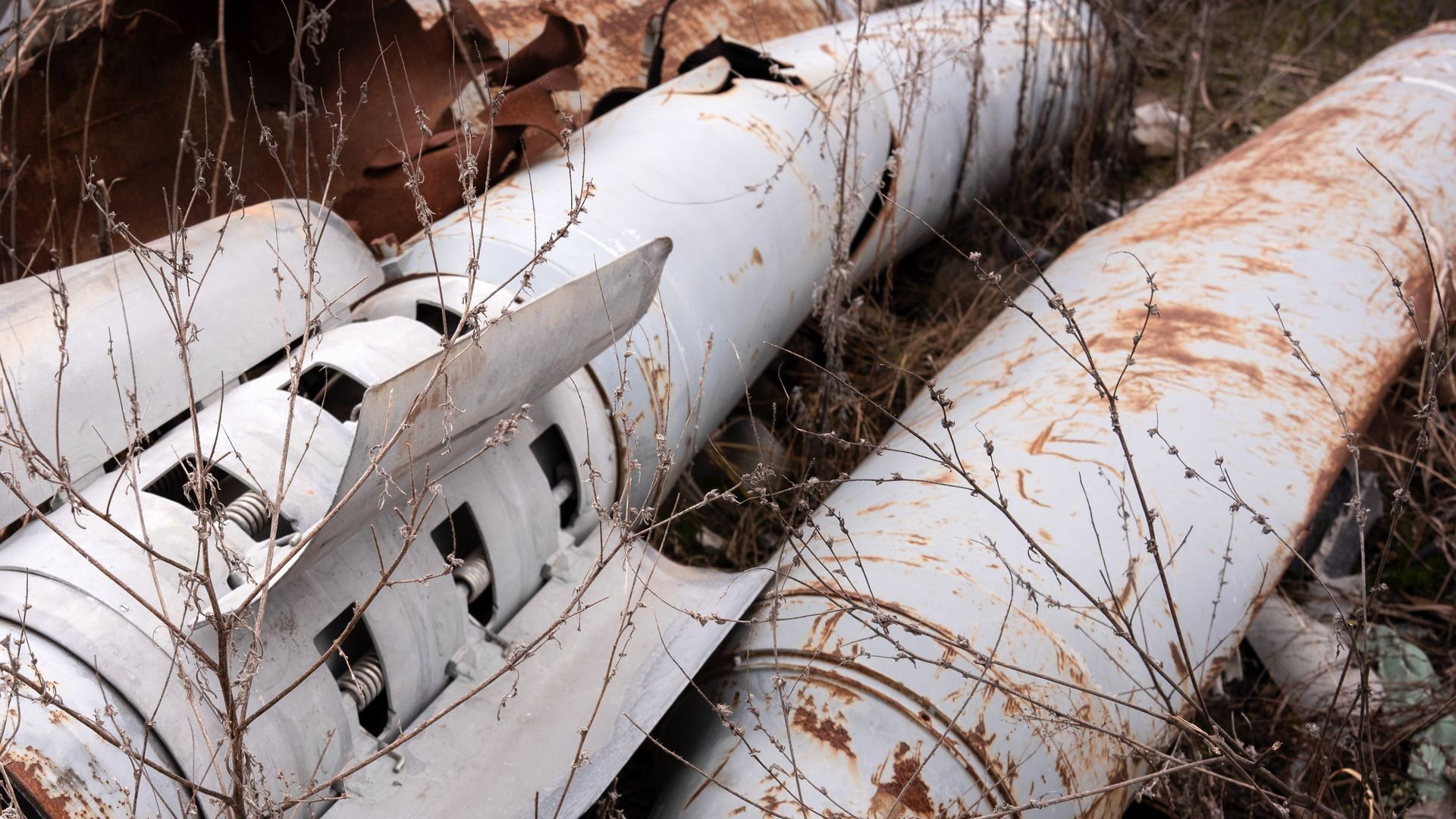
[RAY BOGAN]
Russia’s war against Ukraine is now two years in and despite ever strengthening sanctions and export controls against both Moscow and Vladimir Putin’s allies, American technology is still making its way into Russian weapons.
[Sen. Richard Blumenthal]
“The evidence points overwhelmingly to the fact that Russia relies on Western technology to power its military capabilities and United States companies produce the majority of components found in Russian weapons,” Sen. Richard Blumenthal D-Conn., said.
[RAY BOGAN]
Sen. Blumenthal just returned from a trip to Ukraine, during which he said President Zelensky gave him a report that contained a list of 211 American manufactured chips, semiconductors and other technology in numerous Russian missiles and other high-tech products used to kill Ukrainians on the battlefield.
According to the report, 87 of the pieces were made by four companies: Intel, AMD, Analog Devices and Texas Instruments.
[Sen. Richard Blumenthal]
“American manufacturers are fueling and supporting the growing and gargantuan Russian war machine,” Blumenthal said. “We know that these semiconductors are manufactured by United States companies and they either know or should know what’s happening.”
[RAY BOGAN]
SAN reached out to the companies and asked specific questions about their efforts to comply with US sanctions and exports controls.
Intel said in a statement it, “promptly suspended all shipments to customers in both Russia and Belarus following the outbreak of war. Intel continues to comply with all applicable export regulations and sanctions in the countries in which it operates, and Intel’s contracts require its customers and distributors to comply with the same regulations. Intel actively and diligently works to track and mitigate potential distributor issues and has zero tolerance for circumvention of its requirements.”
Industry advocates have said Russia is able to acquire some of the semiconductors by repurposing those found in household appliances like washing machines. But a witness cast doubt on that.
[Damien Spleeters]
“It makes little sense that Russia would buy a $500 Washing machine for a $1 part that they could obtain more easily otherwise. Some of these chips, of course, can also fit household appliances, but others cannot unless your washing machine can fly,” Damien Spleeters, Deputy Director of Operations Conflict Armament Research, said.
[RAY BOGAN]
Spleeters investigates weapons diversion in conflicts around the world says some of the components his organization analyzed were made after the war began and after sanctions were put in place.
[Damien Spleeters]
“More and more now, we are seeing components that are produced after February 2022. And that should be a concern for manufacturers,” Spleeters said during a Senate Homeland Security subcommittee hearing.
[Sen. Richard Blumenthal]
“So we’re seeing these components in weapons manufactured after the beginning of the war and after the sanctions were imposed,” Blumenthal asked.
[Damien Spleeters]
“Correct,” Spleeters answered.
[RAY BOGAN]
To prevent Russia from obtaining this technology, the witnesses suggest increasing funding to the agencies in charge of export control enforcement, closing loopholes by making rules more consistent between different jurisdictions, and increasing multilateral cooperation which could include entering into an export control treaty.







